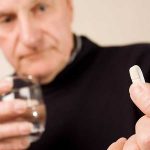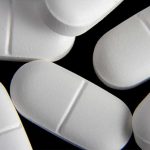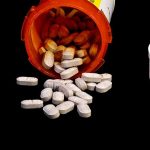- Signs Of A Vicodin Overdose
- Symptoms Of A Vicodin Overdose
- Common Side Effects Of Vicodin Use
- What To Do If You Suspect An Overdose
- Treatment For A Vicodin Overdose
It is possible to overdose on Vicodin. When prescribed as a prescription drug for pain relief, a typical Vicodin dosage is between 5 to 10 mg hydrocodone and 300 mg acetaminophen.
A lethal overdose can be any Vicodin dosage above 40 to 60 mg hydrocodone and 3,000 mg acetaminophen.
Symptoms of Vicodin overdose include extremely slowed breathing, clammy skin, coma, and liver damage. Immediate medical attention may be needed to reverse and treat a Vicodin overdose.
Other medications, such as monoamine oxidase inhibitors (MAOIs), can interact with Vicodin. Drug interactions can cause a previously safe dosage to become life-threatening. Your doctor should be aware of your medical history and current medications before prescribing Vicodin.
Signs Of A Vicodin Overdose
A victim of Vicodin overdose can exhibit physical and behavioral effects. If a family member or loved one is taking Vicodin, there are potential signs of an overdose that you can look out for.
Signs of a Vicodin overdose include:
- sleepiness
- shallow breathing
- unconsciousness
- pinpoint pupils
Symptoms Of A Vicodin Overdose
Hydrocodone and acetaminophen, the two main ingredients of Vicodin, can cause separate overdose symptoms.
Mild Symptoms
Mild symptoms of Vicodin overdose may appear several hours or even days before the onset of severe symptoms. These symptoms include:
- nausea
- vomiting
- reduced well-being
Mild overdose symptoms may be early signs of hepatic (liver) toxicity due to acetaminophen. Severe symptoms may appear 48 to 72 hours after mild symptoms.
Severe Symptoms
An acetaminophen overdose can cause liver failure when taken in extremely high doses, which can be life-threatening in some cases.
A hydrocodone overdose can cause respiratory depression (extremely slowed breathing), clammy skin, slowed heart rate, and low blood pressure (hypotension). These symptoms can also be life-threatening.
From March 2021 to April 2021, opioids were a primary factor in over 75,000 overdose deaths in the United States.
Common Side Effects Of Vicodin Use
While the above-mentioned signs and symptoms of a Vicodin overdose can be severe, it should be known that simply taking this prescription painkiller can produce a variety of common side effects such as:
- drowsiness
- sedation
- constipation
- impairment
- skin rash
When Vicodin is a subject of drug abuse, the risk of both common side effects and drug overdose may increase. Abusing Vicodin may include not taking Vicodin as directed, such as snorting the drug, or taking the pain medication without a prescription.
Talking to your doctor about the potential side effects of Vicodin can help you decide whether you should take Vicodin for chronic or severe pain relief.
What To Do If You Suspect An Overdose
If you suspect a loved one has overdosed on Vicodin, call 911 immediately.
Naloxone is designed to reverse the effects of opioid overdose. It can restore breathing , and can be administered by citizens without professional medical training. Naloxone should only be given when a potential overdose victim has significant breathing problems.
Naloxone can be obtained by patients who are taking opioids long-term for severe pain, and who are also at higher risk for an overdose. Doctors and pharmacists can show patients and their caregivers how to give naloxone.
Treatment For A Vicodin Overdose
Immediate treatment for a Vicodin overdose focuses on restoring breathing, reducing further drug absorption, and treating overdose symptoms. A Vicodin overdose may be a sign of a long-term substance use disorder, which may require long-term addiction treatment.
Long-term treatment options for Vicodin overdose focus on managing withdrawal symptoms and teaching patients healthier alternatives to unsafe drug use. Behavioral therapy, medications such as methadone and buprenorphine, diet supplements, and other options may be used.
Contact Northeast Addictions Treatment Center today to learn about our opioid treatment programs.
Sources
- Centers for Disease Control and Prevention (CDC) — Drug Overdose Deaths in the U.S. Top 100,000 Annually
- Harvard Health Publishing — Acetaminophen safety: Be cautious but not afraid
- National Library of Medicine: MedlinePlus — Hydrocodone and acetaminophen overdose
- Substance Abuse and Mental Health Services Administration (SAMHSA) — Naloxone
- U.S. Food and Drug Administration — (hydrocodone bitartrate and acetaminophen tablets, USP) 5mg/500mg
Written by
Northeast Addition Editorial Team
©2024 Northeast Addition Center | All Rights Reserved
This page does not provide medical advice.





